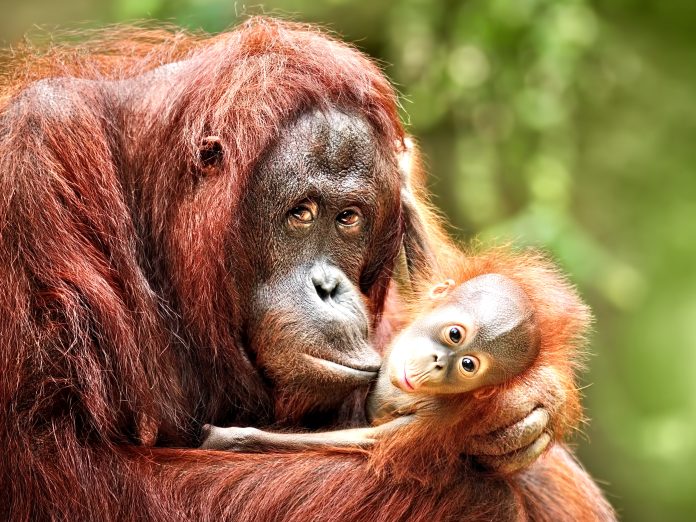The illegal trafficking and private keeping of primates, specifically orangutans, in the UAE is a dire issue with far-reaching consequences for the animals themselves and their populations in the wild.
Many other primate species are targeted as well, including chimpanzees, macaques, and marmosets. The animals trafficked are often times listed as endangered or vulnerable on the IUCN Red List.
Orangutans are highly intelligent and social creatures that require vast amounts of space and specialized care to thrive. When taken from their natural habitats and placed into captivity for private keeping, they suffer immensely and often face a lifetime of abuse and neglect.
The demand for exotic pets in the UAE has fueled a lucrative black market trade in primates, with orangutans being one of the most sought-after species due to their endearing appearance and human-like behaviors.
Primates are typically stolen from the wild as infants after their parents have been brutally killed. Sadly, the infants are much easier to transport and sell. High mortality rates result from the stress of capture, poor handling, and inadequate care, with several primates dying for every one that reaches the illegal pet trade.
Once the traumatized primates are smuggled into the country, they are then sold to wealthy individuals who want to display them as status symbols or sources of entertainment.
The impact of this illegal trade on wild orangutan populations is devastating. Orangutans are already facing severe threats in their natural habitats, such as deforestation, palm oil plantations, and poaching. The additional pressure of being targeted for the pet trade further decimates their numbers and disrupts their social structures. Female orangutans are particularly vulnerable, as they are often killed in order to capture their infants for sale.
In captivity, orangutans suffer physically and psychologically. They are often kept in inhumane conditions, cramped cages, and are deprived of their natural behaviors and social interactions. Many suffer from malnutrition, disease, and trauma from their experiences in the wild and during the trafficking process.
Efforts to combat this illegal trade and protect orangutans in the wild are underway, but more needs to be done. Stronger enforcement of laws and regulations, increased education and awareness campaigns, and support for sanctuaries and rehabilitation centers are all crucial in addressing this issue.
The illegal trafficking and private keeping of orangutans in the UAE has a detrimental impact on both the animals themselves and their populations in the wild. It is imperative that we take action to end this practice and ensure the protection and conservation of these remarkable and endangered creatures in the wild.
If you would like to help save orangutans in the wild, please consider making a donation to Orangutan Foundation International, HERE!



